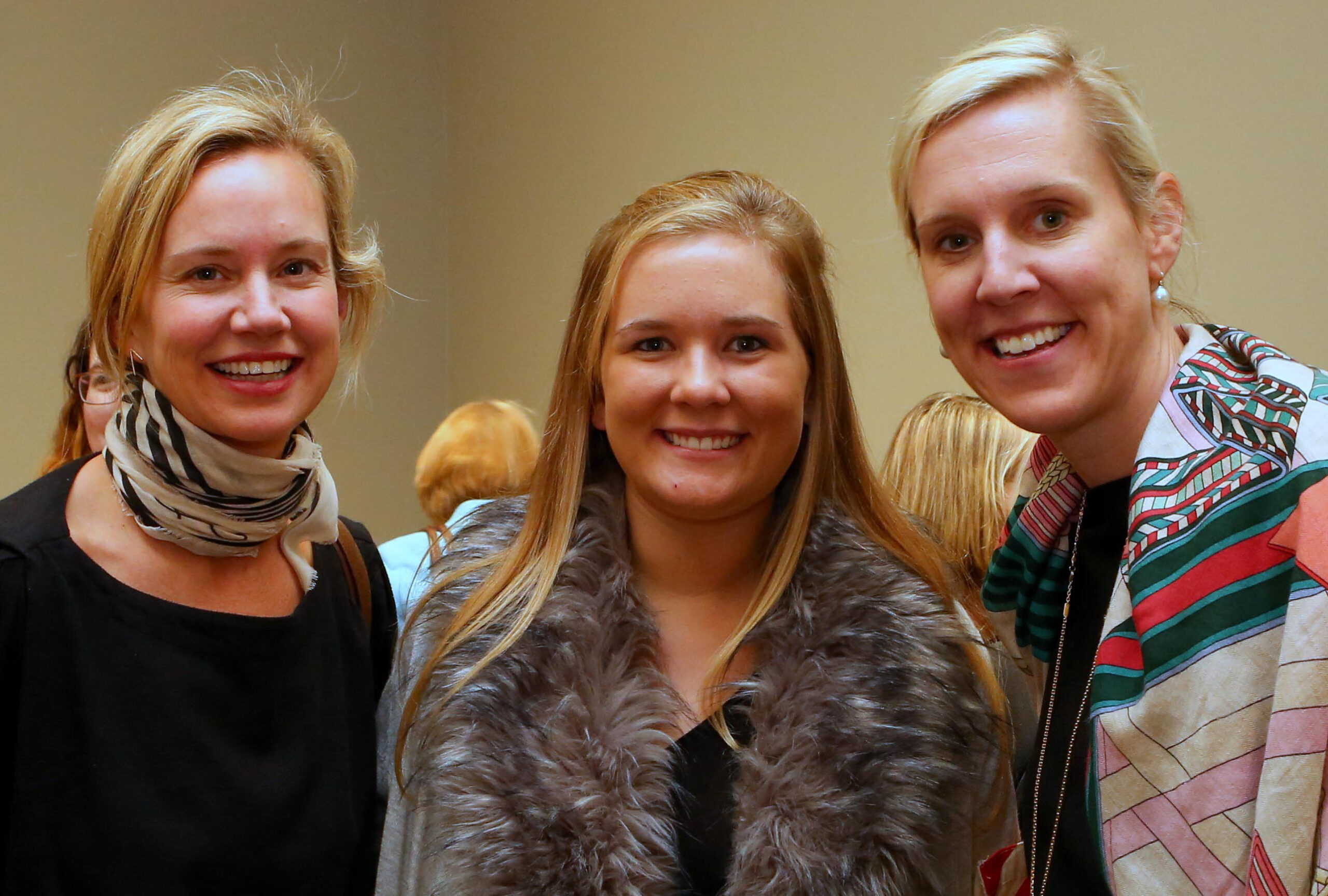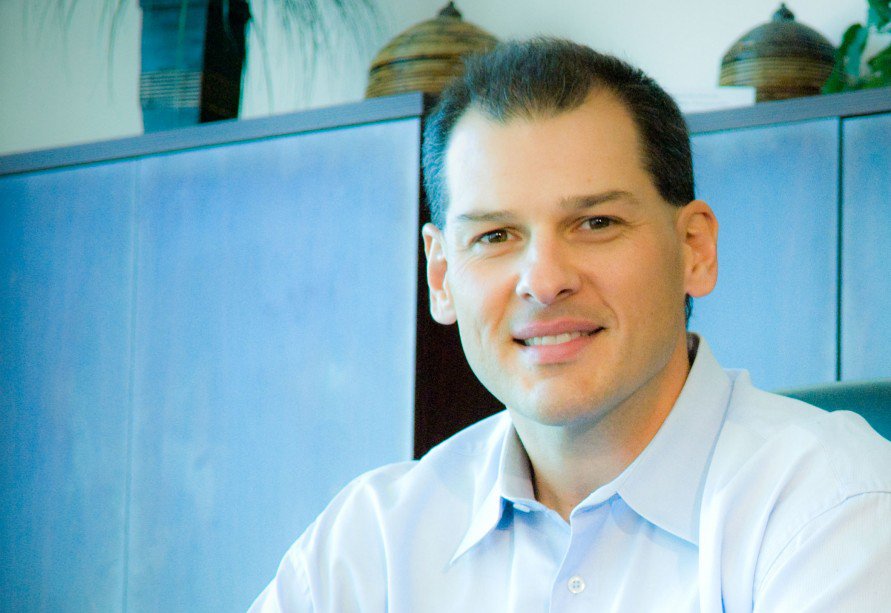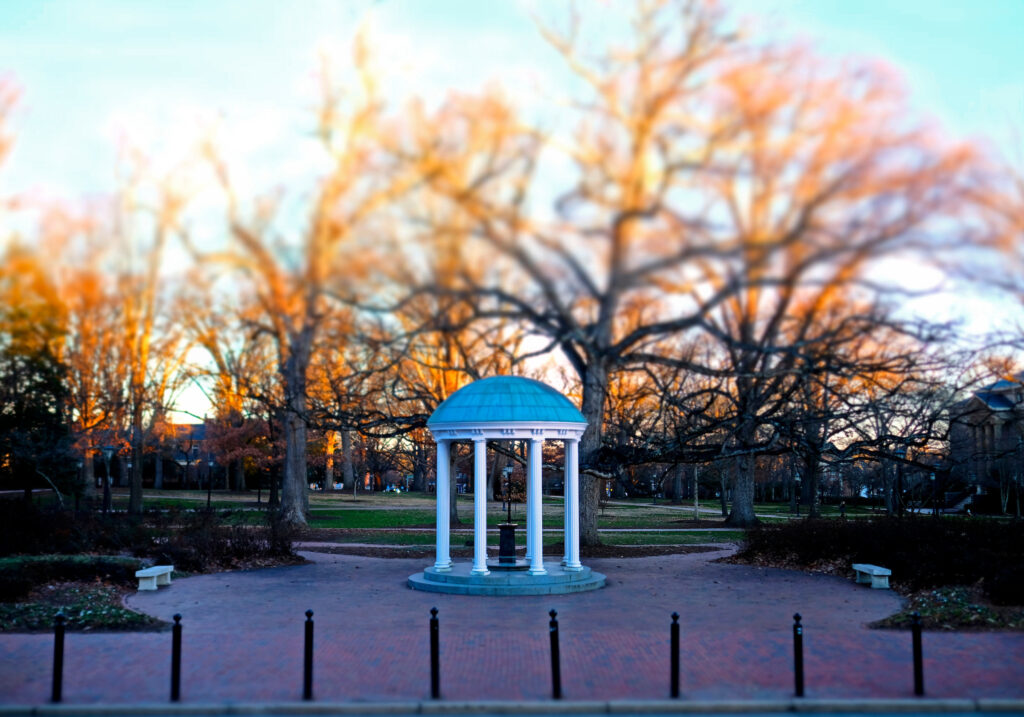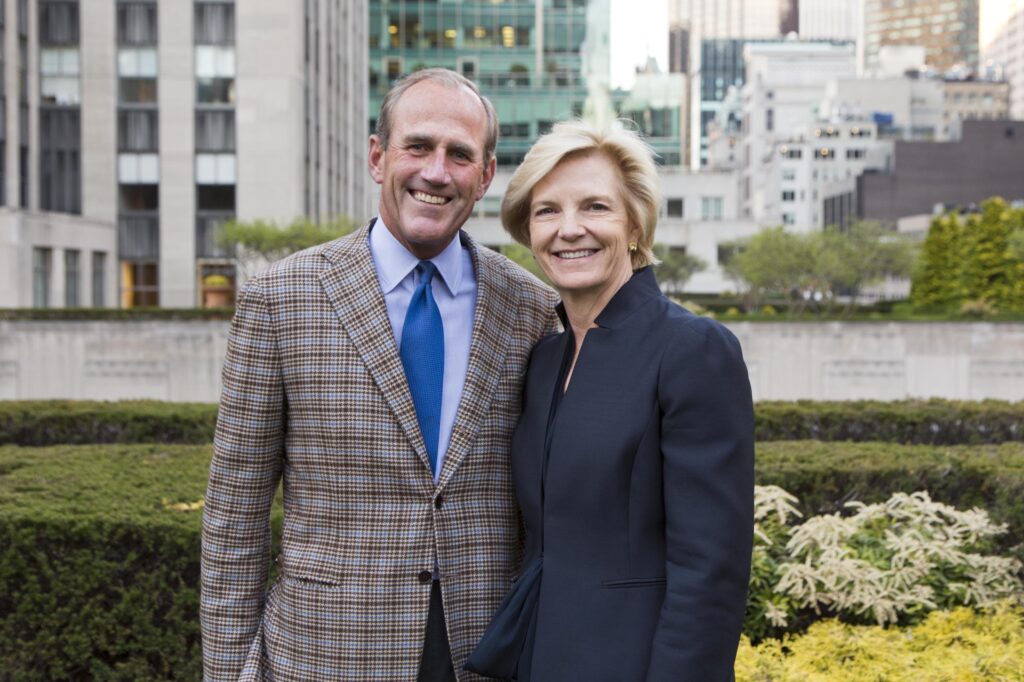Caldwell Family Gift Will Encourage Collaboration Between American Studies, Ackland Art Museum
March 22, 2018

Kate Nevin (left) with Mary Lawson Burrows '20 and Molly McNairy at a reception for the Ackland Art Museum exhibition, "Becoming a Woman in the Age of Enlightenment." Photo by SP Murray
When the Caldwell family decided they wanted to give back to UNC-Chapel Hill — a place that left a lasting impression on each of them — it made sense that their gift would revolve around American studies and the arts.
Their appreciation and love for these two areas goes back to their time as Carolina students. Kate Caldwell Nevin ’99 and her father, Hacker Caldwell ’74, were both American studies majors. Nevin’s brother, Hardwick Caldwell ’09, was an art history major.
“Creating the gift would not only be a collaborative effort from a family perspective, but it would also be collaborative in joining all of the things we loved most about Carolina,” Nevin said.
A collaborative spirit

When Nevin and her family began the discussion to create a fund, she realized that there was already a “beautiful connection” between the department of American studies and the Ackland Art Museum, referencing previous exhibits with a focus on Southern artists, including Thornton Dial and Ronald Lockett, which were successful in the Carolina community and beyond.
Their gift to UNC-Chapel Hill is composed of two parts: the Caldwell Family Artist-in-Residence Fund and the Caldwell Family Fund for the Ackland Art Museum, both of which will build upon an existing synergy between the two campus areas.
“It was neat to see that the collaborative spirit was already there,” Nevin said. “What was missing — and what could really help tie the two together in a meaningful way — was help leveraging the resources.”
The Caldwell Family Artist-in-Residence Fund will bring a visiting artist, representing any field in the arts, to campus each year to work directly with undergraduate and graduate students and faculty members.
The Ackland Fund will allow the museum to acquire artwork by the artist-in-residence, or other artists focused on the American South, for the permanent collection. It will also support exhibits at the museum that celebrate art related to the American South.
“This is an entirely new kind of gift for us,” said Katie Ziglar, director of the Ackland Art Museum. “We are excited to work with an academic department, such as American studies, to bring in different types of artists so that students will have interactions with authentic, deeply interesting people both inside the Ackland and elsewhere on campus.”
The first two artists-in-residence visited campus this spring. They are Ronni Lundy, a James Beard award-winning food writer and memoirist, who wrote the book Victuals, and Theresa Gloster, a painter, sculptor, textile artist and beautician.
“The Caldwell family very wisely defined art and artist in the widest possible terms,” said Elizabeth Engelhardt, chair of the department of American studies and the John Shelton Reed Distinguished Professor of Southern Studies. “That generous breadth allows the department to collaborate on who and what the museums and classrooms of the future can be.”
Nevin, who currently serves as chair of the Ackland National Advisory Board, hopes that this gift will continue to evolve and offer learning opportunities for the entire community for years to come.
“The yearly process will continue to provide additional opportunities for enrichment, from choosing the artist-in-residence to working with graduate students in the department to executing a series of events for an Ackland exhibit,” she said.
Creating a meaningful gift
Nevin hopes this gift can inspire other Carolina alumni to think about ways in which they can continue to make this effort as robust and beneficial as possible to both the department of American studies and the Ackland.
“It was exciting to think collaboratively into how a gift would look between two areas that meant so much to us as a family,” she said. “It was just as fun dreaming this up as it will be to see the gift actually take shape.”
Nevin is currently a managing director for TSWII Management Company. She and her husband, Lindsay, live in Charleston, South Carolina, with their three children.
By Kayla A. Blevins ’16



